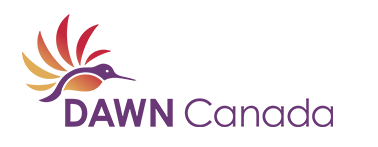Intersectionality Conference 2014
International Conference on Intersectionality
Simon Fraser University, Vancouver, British Columbia
April 24th ? 26th 2014
The Institute for Intersectionality Research and Policy at Simon Fraser University will be hosting an international conference on intersectionality from April 24 ? 26, 2014 in Vancouver, British Columbia entitled: Intersectionality Research, Policy and Practice: Influences, Interrogations and Innovations.
The conference will prioritize recent theoretical developments and debates, interdisciplinary perspectives, critical assessments, methodological advancements, research, policy and practice applications, and work in the creative arts.
Friday April 25th 11:00am ? 1:00pm ? Breakout paper session
Doris Rajan
?An Intersectional Community Development Approach to Addressing Violence & Health?
Community, Activism and Social Change
Room 1415
About the Presentation:
Doris Rajan: Director of Social Development, IRIS-Institute for Research and Development on Inclusion and Society &
National Director, InFocus: Bringing People with Disabilities into the Picture - A National Pan-Canadian Community Leadership Initiative a project of the DisAbled Women's Network (DAWN) Canada and the Canadian Association for Community Living (CACL).
While there has been an increase in understanding among those engaged in community development work in Canada, that work needs to take place in local communities involving cross-sectoral participation and be led by those most affected by an issue - community development work to-date has been principally confined to local geographic communities resulting in the learnings and outcomes rarely extending to provincial/territorial and national levels where broad level systemic change can take place. This work has also largely focused on tool and resource development with minimal attention given to the strategies needed to implement such tools.
A strategy for local-to-national social innovation is highly valuable in addressing social issues experienced by marginalized populations across Canada. The theoretical framework for such a strategy designates that a certain kind infrastructure be developed at the national, provincial, territorial and local levels, requiring the establishment and cultivation of particular kinds of partnerships, multi-layered activities and social investments.
The DisAbled Women's Network (DAWN) Canada/ Réseau d'action de femmes handicapées (RAFH) Canada and the Canadian Association for Community Living (CACL) are currently implementing such a strategy, entitled InFocus: Bringing People with Disabilities and Deaf People into the Picture - A National Pan-Canadian Community Leadership Initiative, which addresses issues of violence and health access affecting people with disabilities and Deaf people.
People with disabilities include women, racialized people, immigrants, First Nations people, seniors, youth, LGBTQ-identified people, etc., and with every layer of marginalization, an additional barrier is added to the wide-ranging experience of disability. In recognition of this, InFocus is an approach that brings together stakeholders from various mainstream sectors (i.e. health, Violence Against Women services, justice, etc.) and equity seeking agencies (i.e. First Nations, women, immigrant, seniors, youth, etc.) with people living with various types of disabilities to work towards the shared goal of long-term community planning for social inclusion of people with disabilities and Deaf people in 13 demonstration communities in each of the provinces and territories of Canada.
The InFocus initiative offers an integrated model that understands both the distinctiveness and intersection of experiences, as well as one that exploits the best, of both bottom up and top down approaches, which we feel will result in real change for individuals with disabilities and Deaf people, the communities in which they live and the systems that they interface with.
